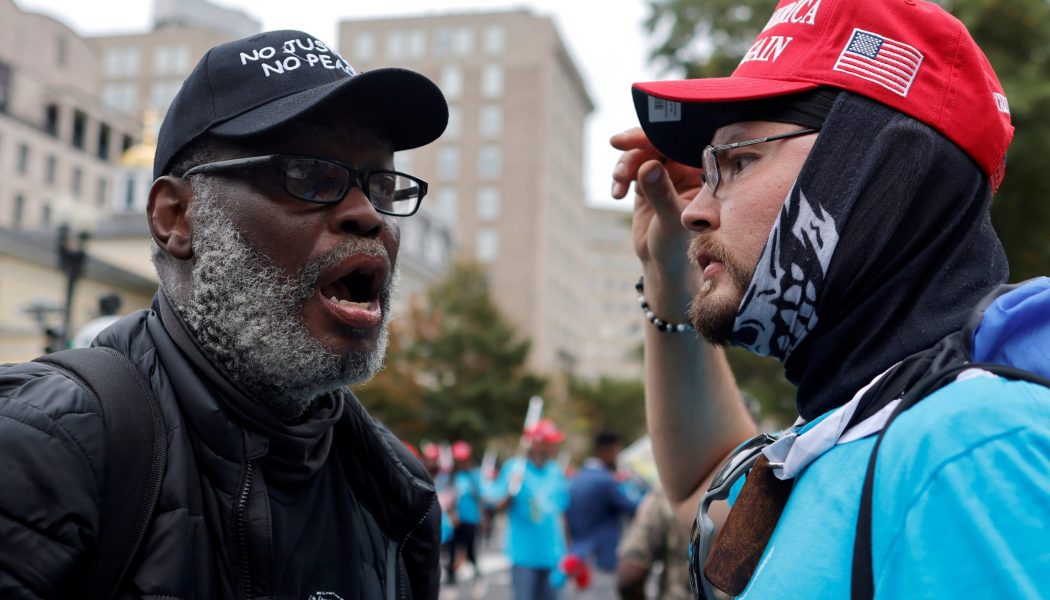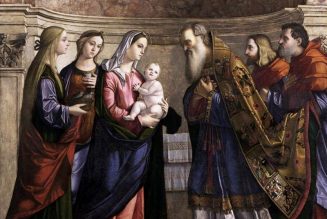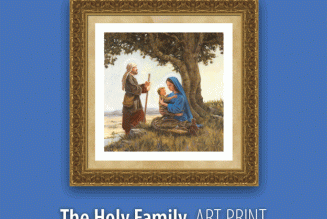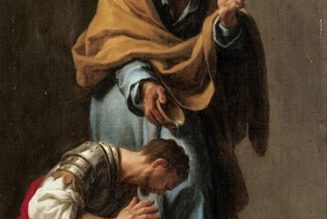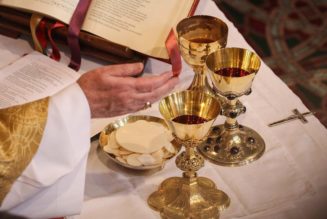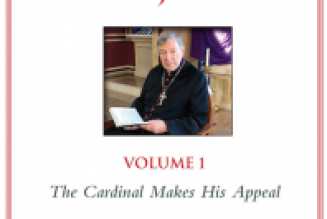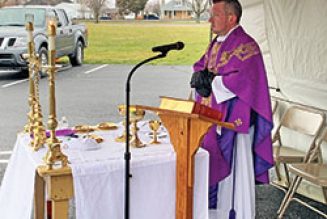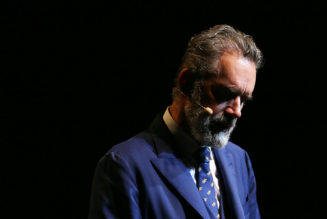
[Editor’s Note: Daniel Philpott is Professor of Political Science at the University of Notre Dame. He earned his Ph.D. in 1996 from Harvard University and specializes in religion and global politics, focusing on religious freedom, reconciliation, the political behavior of religious actors, and Christian political theology. His books include Revolutions in Sovereignty (Princeton, 2001), God’s Century: Resurgent Religion in Global Politics (Norton, 2011, coauthored with Monica Duffy Toft and Timothy Samuel Shah), Just and Unjust Peace: An Ethic of Political Reconciliation (Oxford, 2012) and Religious Freedom in Islam: The Fate of a Universal Human Right in the Muslim World (Oxford, 2019). He spoke to Charles Camosy about the 2020 U.S. elections.]
Camosy: As professor of political science at Notre Dame, I imagine this political moment hits you differently than it does other folks. What is on your mind and heart with 2020 general election now upon us?
Daniel Philpott: I am greatly anxious for our country. The level of rancor between the two parties is so high that we commonly read predictions of violence or constitutional crisis surrounding the elections. The two presidential debates have placed this rancor on full display. Just compare their tenor and spirit with debates in presidential elections in recent decades and one can see what has changed.
As a Catholic, I then look at this rancor in light of what each candidate and his running mate is promising us and the picture grows bleaker. Neither promises a solution that will move us toward greater harmony, peace, and justice.
There is Trump, who rode to office in 2016 on a promise to fix a “rigged system,” to which he rallied supporters by demeaning Muslims, immigrants, African-Americans, and so many others, and who has regularly belittled opponents, spoken falsehoods, and abused his power.
Yet Biden promises not only to entrench but also to expand an abortion regime that has taken over 60 million lives, abandoning his support for the Hyde Amendment, which is said to have saved some two million lives, calling for a national legislative codification of abortion rights, and jettisoning even erstwhile talk of “safe, legal, and rare.” His running mate, Kamala Harris, even has advocated using executive orders to nullify scores of state-level restrictions on abortion.
On these and many other issues, in many other respects, both candidates compromise human dignity, the most important principle that the U.S. bishops offer us for judging politics. It may be because each candidate’s stance is so morally compromised that such hostility and hatred arises between the factions of our fellow citizens who coalesce around them.
Professor Daniel Philpott. (Credit: Courtesy to Crux.)
I have spent much of my career as a scholar and activist in politics studying how countries deal with past injustices of civil war, dictatorship, and genocide – the fruit of polarization. I’ve been particularly interested in the work of Christian churches in these settings, where they have tapped their theology for a teaching of reconciliation and forgiveness and sought to bring this message into their country’s politics. I now think that here in the U.S. we have reached a point where serious efforts towards reconciliation will be called for.
More generally, I view all of this from the standpoint of a Catholic who believes that it is the vocation of the Church and its members to articulate and pursue a holistic approach to justice that is thoroughly grounded in natural law and the Gospel. We do this out of a love for our neighbor and it is no less than a participation in the redemptive work of the cross and resurrection, which is God’s justice. Thus, our plight cannot simply be that of constantly winding our way through lesser evils and bad alternatives that are imposed on us by our political elites and are far removed from the social vision of the Church. Our calling is to be positive and proactive, or, as now Justice Amy Coney Barrett told the graduating class at Notre Dame Law School in 2006, to build the kingdom of heaven. Today, this task is starting to look like one of political renewal rather than signing on to one of the going alternatives while holding our noses.
I note that a central research interest of yours, religious freedom, is a major issue for voters coming into this election. How do you see this issue playing out?
It’s a major concern. Biden has promised to take us back to the way things were prior to the Supreme Court’s Hobby Lobby decision of 2014. To see what this means, recall the Obama Administration’s aggressive curtailments of the liberty of Christian institutions – colleges and universities, including Notre Dame, where I teach, as well as hospitals, charities, and the like – to live out their faith in their endeavors, especially in areas of sexuality and marriage. The head of Obama’s Civil Rights Commission even said that religious freedom is a cloak for bigotry! Such outrages are what prompted the U.S. Bishops to write a major letter about threats to religious liberty in 2012.
We should not underestimate how serious this is. Catholics – not to mention Protestants and people of other faiths – have long cherished the “American experiment” as one that allowed them to live out the pathway to salvation that their Church has marked out. What is at stake here – the pursuit of right relationship with God, in this life and the next – is more important than health care or jobs, as important as these are in this life. This is why religious freedom is rightly known as the first freedom.
Trump’s administration has done well in scaling back Obama’s curtailment of religious liberty. It has also done quite a good job of promoting religious liberty overseas, holding two ministerials that have brought together diplomats and activists from all over the world and issuing an executive order for religious liberty to be promoted in multiple agencies that carry out foreign policy. Trump made an excellent choice in appointing former Senator Sam Brownback to be our Ambassador at Large for Religious Freedom.
But there are problems with Trump’s policies as well in the matter of religious liberty. Shortly after he came into office in 2017, he issued his infamous travel ban, which he claimed was only a matter of security yet appeared to be a fulfillment of his campaign promise to ban Muslims from entering the United States – a classic instance of his strategy of gaining power at the expense of minorities. The policy did not go as far as he had threatened on the campaign trail, but it did ban travel from several Muslim-majority countries (though not those that have harbored terrorists most) and even barred the entry of refugees from war-torn Syria for a period. Trump then tweeted out hateful anti-Muslim videos while in office. His rhetoric contributed to an increase in hate crimes against Muslims and gave sanction to citizens who want to prevent the building of mosques and undertake other efforts against Muslims. This is not religious freedom, either.
It’s our job as Catholics to articulate and defend religious liberty for everyone, following the teaching of Dignitatis Humanae, the great document of the Second Vatican Council issued in 1965. Here in the U.S., this means liberty for Christians as well as for Muslims and Jews, who have suffered an increase in hate crimes in recent years. By supporting religious freedom for all, we best secure it for ourselves.
And despite these concerns, I note that you are not a Trump supporter. Indeed, you recently joined the advisory board for the American Solidarity Party. Can you say something about the journey that led you to this point?
I was a Democrat growing up. My grandfather had worked for a family-owned bakery supply business in St. Louis and he and my grandmother represented the Democratic Party of the New Deal and the working class. I even recall attending an “Elephant Roast” with the College Democrats as a student at the University of Virginia in the late 1980s. My thinking changed, though, in the early 1990s, when I became convinced of the pro-life position, and then in 1995, when I read Pope John Paul II’s encyclical, Evangelium Vitae, which remains the piece of writing that has influenced my thinking about politics more than any other. The pope and saint helped me to understand that the West is beset by a culture of death, rooted in a relativistic and self-expressive notion of freedom, that has yielded the mass killing of unborn persons as well as other manifestations of violence, including the death penalty.
I then tried to be a pro-life Democrat and supported candidates such as Pennsylvania Governor Bob Casey. I wanted to support a party that Hubert Humphrey had once described as the one that advocates for people in “the dawn of life, the twilight of life, and the shadows of life.” But over ensuing years, it became apparent that the Democratic Party was being taken over by the lifestyle liberalism of the New Left that had made its mark in 1968 and 1972, and that it would make little room for pro-life voices. The Democrats have even featured heads of Planned Parenthood as prime-time speakers at recent conventions! The abortion rights extremism of our current candidates manifests this trend vividly. I’ve appreciated Trump’s measures on behalf of life, but he is no apostle of the Gospel of Life given his vast compromises of human dignity through so many words and deeds.
So, to see a party emerge that is actually founded on Catholic teaching and whose platform reflects a holistic commitment to this teaching is vastly encouraging. It’s what I have been waiting for over many years. ASP allows one to favor protection for the lives of the unborn and be against the death penalty; support the moral ecology that includes marriage as well as the natural ecology that involves the climate, the oceans and the land; promote religious liberty and racial reconciliation; support immigrants and all of those who need health care; and support an economics of distributism that values the free market as well as everyone’s participation in it. One can affirm government’s proper role in the provision of welfare as well as the crucial importance of civil society and strong social ties, especially as these are realized through religion. And all of this is expressed with civility.
ASP is modelled on Christian Democrat parties, which were founded on Catholic social thought and have brought renewal to political orders in Europe and Latin America, especially after World War II, even while they have grown more secularized today. Now, ASP offers the prospect of renewal in American politics. What other party styles itself as pro-life, pro-peace, pro-environment, and pro-family? This is why I have a sign in my yard supporting the party’s candidate for president, Brian Carroll, and his running mate, Amar Patel.
What do you say to those who argue that voting for a party which has no chance of winning is basically throwing one’s vote away?
Yes, I’ve been told this. Now, with ASP, though, a politically homeless Catholic is no longer voting for his dog or his best friend but rather has an actual party, a platform and a candidate for which to vote! By voting for ASP, one can communicate a desire for political renewal, a holistic politics of human dignity, and a rejection of our unacceptable alternatives. And think of it – were more people to vote for ASP, then it would no longer be the small, obscure party that begets charges of throwing away one’s vote!
I think you said some Notre Dame students are putting together an American Solidarity Party club or group, yes? What do developments like this indicate about the future of this new party?
Yes, there is an embryonic group forming, starting out as a reading and discussion group. It shows that young people are attracted by ASP’s vision – and this is critical for its future success!
Join Our Telegram Group : Salvation & Prosperity
